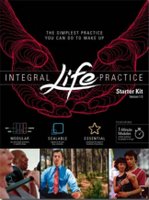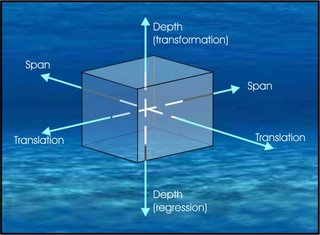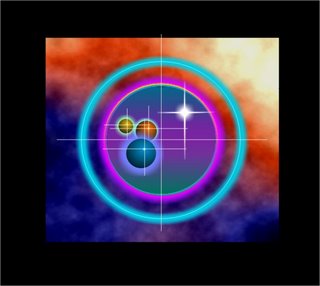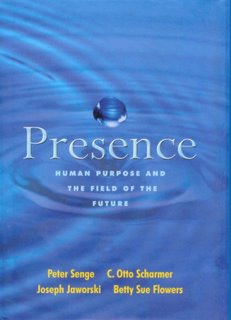 Anyone who has done any sort of management or sales training knows about the "elevator speech." What do you say to someone, in an elevator, when they ask what you do, and you only have "x" amount of seconds before they get off on their floor?
Anyone who has done any sort of management or sales training knows about the "elevator speech." What do you say to someone, in an elevator, when they ask what you do, and you only have "x" amount of seconds before they get off on their floor?Those of us who are "integrally informed" have the same problem. Have you met anyone who could tell what integral is, in 30 seconds or less? Ha! you say...that's impossible!...and you'd be right. But you can give a brief overview without stumbling all over yourself.
When SeattleIntegral was just new, several of us took on that task, and wrote our own elevator speeches. What I am presenting here is the evolution of my elevator speech.
My first draft effort said:
"Integral, meaning composed of parts that make a whole complete, refers to an emerging philosophy that provides a comprehensive picture of our universe, and a way of thinking that leads to a better world."
"It's a multi-dimensional philosophy as well as tool with broad implications for the arts, business, science, religion, and philosophy. It unifies east, west, past and present, focusing on spirituality and human development, and is a vision for problem solving and enlightened living."
Phew! In an effort to simplify my "commercial." then i wuz thinkin'.....
"Integral is an emerging multi-dimensional philosophy with a heart-centered worldview and strategies that create the potential for trust, understanding, and transformation of ourselves, our communities, and our world."
After listening to other SeatleIntegral members' responses, particularly my dear friend Tom Mull's contribution, I came back to this, which was basically where I was before this exercise:
"Integral is an emerging all-inclusive philosophy that combines science, religion, western and eastern philosophies, and the great wisdom traditions into models for personal, community, and global growth, and greater enlightenment."
The problem with some of these is that when you start talking about enlightenment to blue and orange vMemes, you lose them.
So here's my most recent version:
"In a nutshell, 'integral' is a comprehensive and inclusive philosophy, and on a deeper level, an emerging consciousness; a grand sysnthesis uniting eastern and western philosophy, religion, science, politics, business, art, morals, values, meaning, etc., that can apply to any contemporary issue. It's a new way of looking at the world, it's problems, and their possible solutions....here...let me give you my card...." :)
Any of these, and your own, should be short enough to prevent the familiar "glazing over the eyes" that we've all experienced when explaining "integral" to our families and friends. You're welcome to borrow anything I've written here, but if you haven't done this exercise, you should, I believe it's a critical step in solidly formalizing your cognitive awareness of what integral means....even if you never wind up in an elevator.







